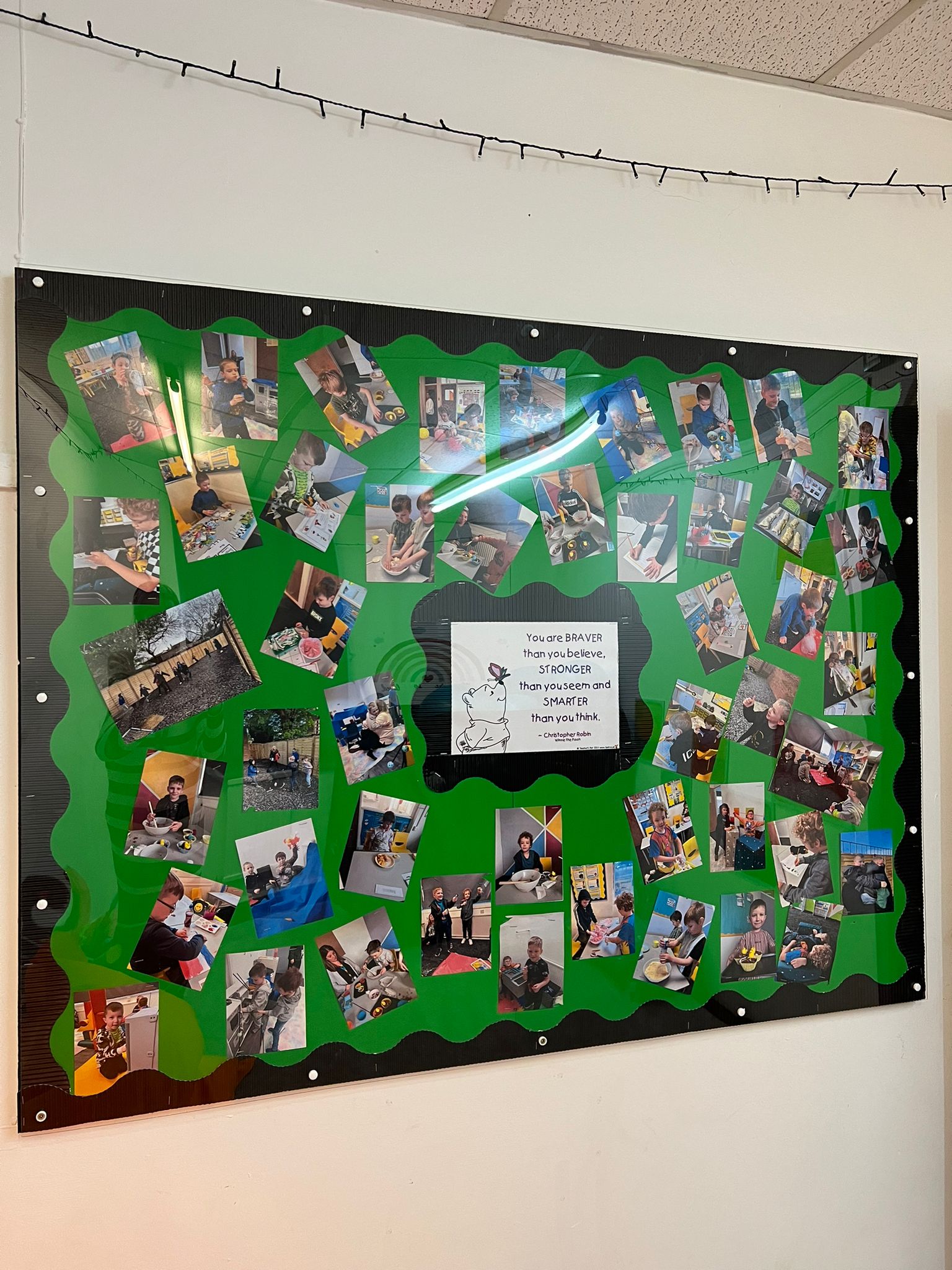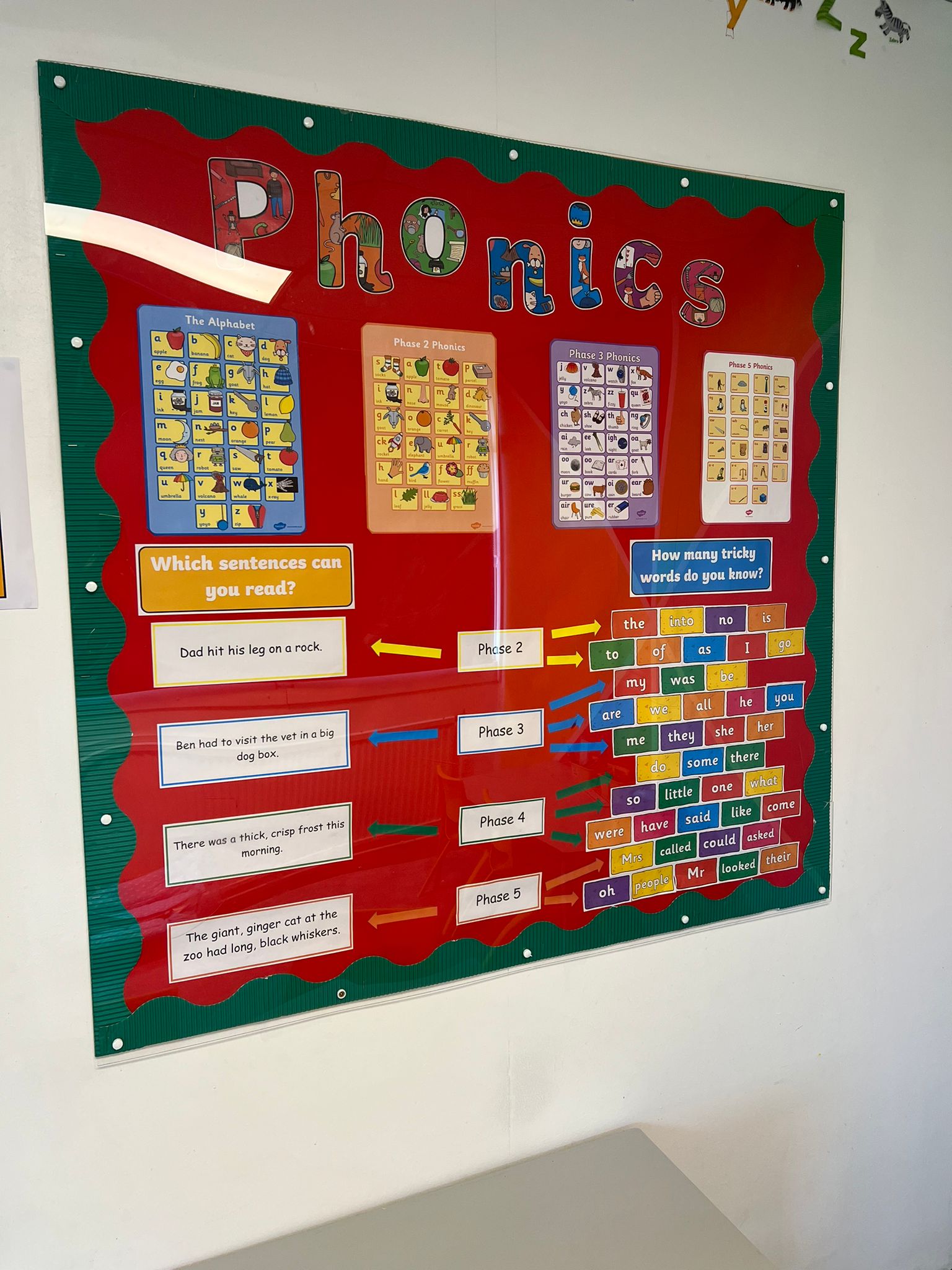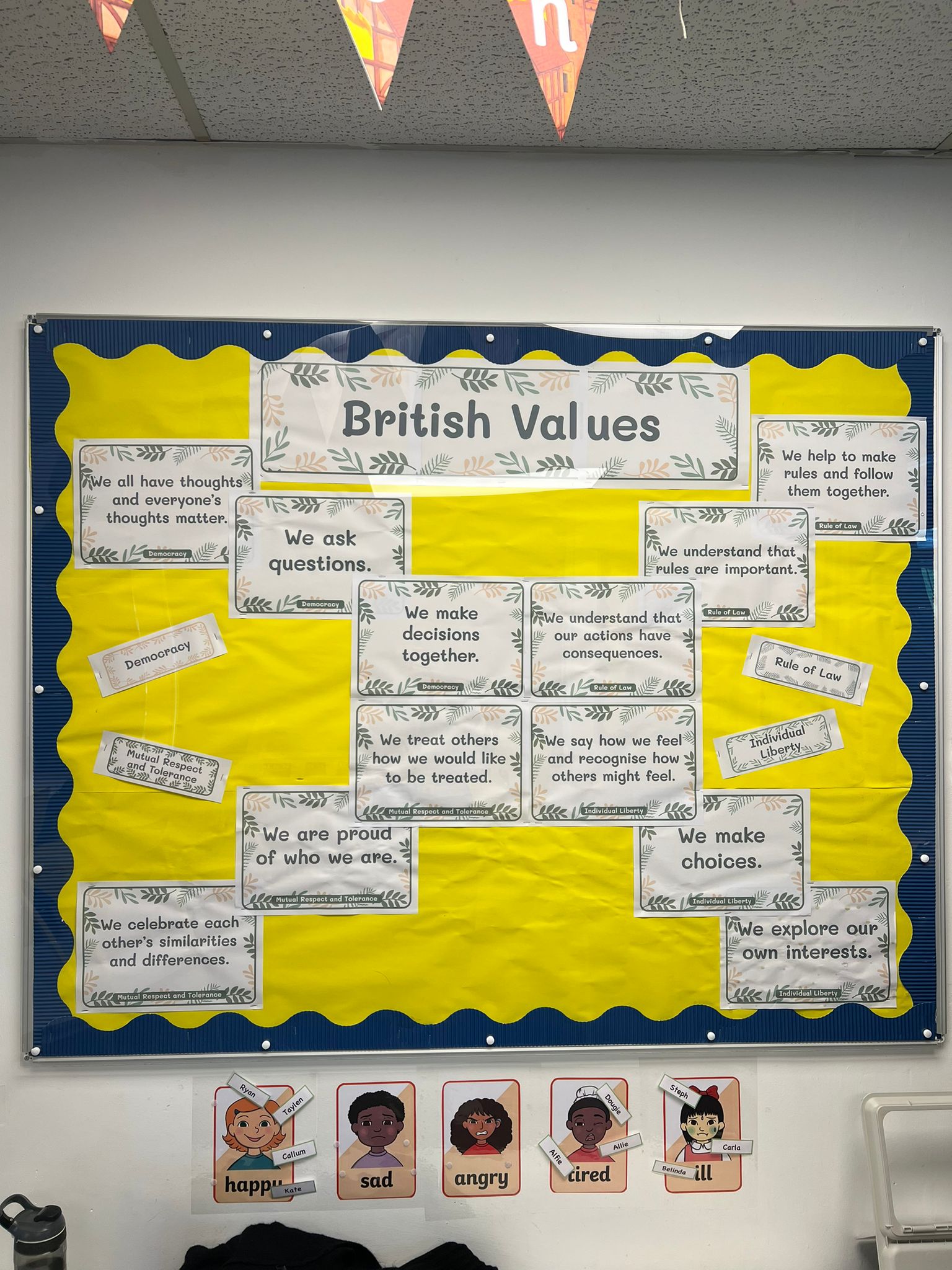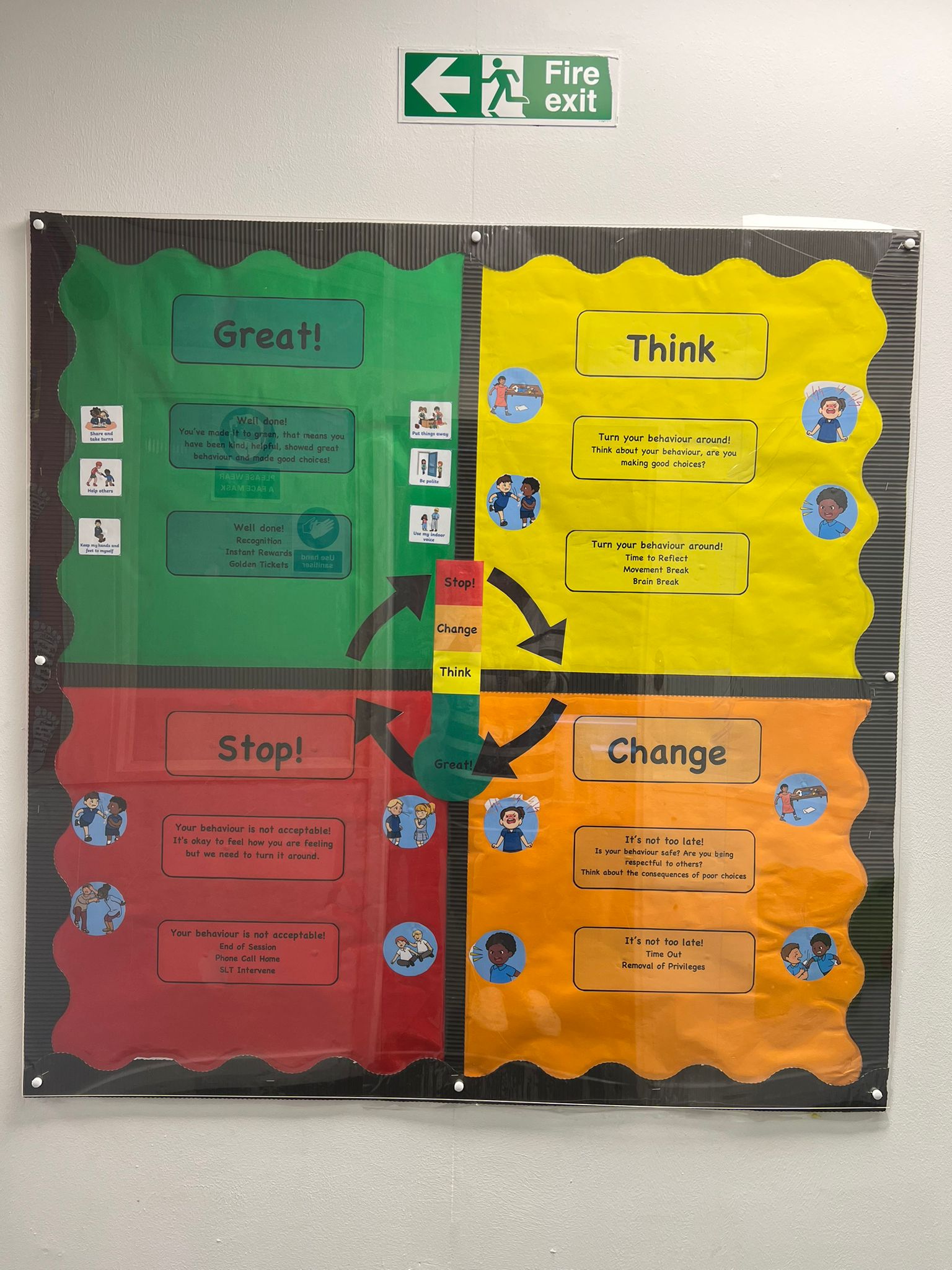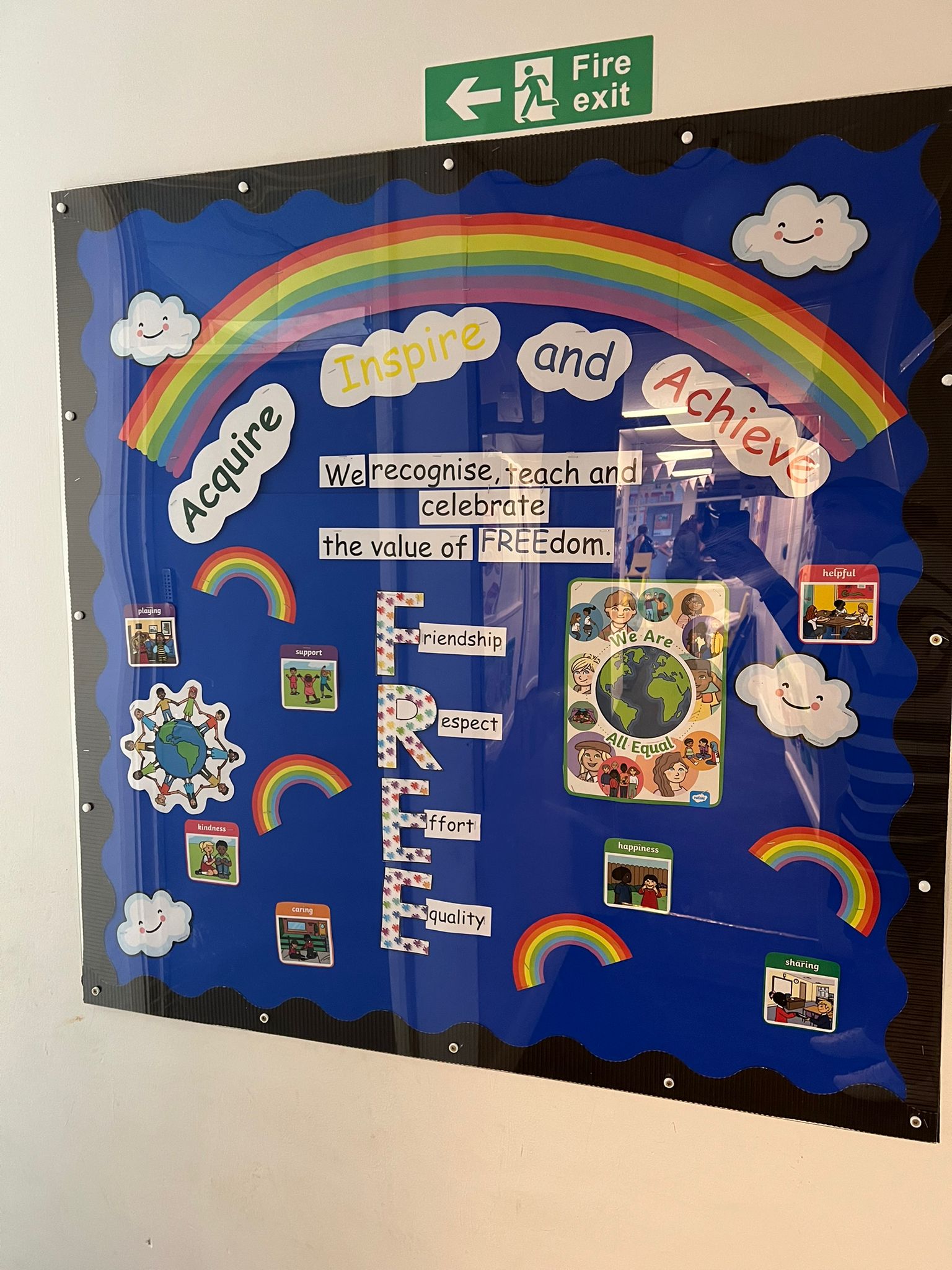The Bridge
Primary KS1 Curriculum

At The Bridge, all learners have the right to access a curriculum that is challenging, enthralling, appropriate, and responsive to their individual needs, without compromising their entitlement. As an alternative provision, we provide respite for children who have faced struggles and challenges within their previous environment due to their behavioural or learning needs. Lessons at The Bridge aim to motivate, engage and capture the interest of our learners to prepare them for the next stage of their educational journey, whether that be returning to their home school or moving on to a new setting.
With the complex learning and behavioural needs of our learners, we acknowledge that the needs of each individual are central. The provision offered is sufficiently flexible to enable learners to be placed at an appropriately challenging point on the continuum at any point during their time with us. We also recognise that these needs may change, sometimes frequently and at short notice, therefore our curriculum also offers the flexibility to meet those changing needs.
We recognise that many of our learners have previously become disengaged from learning and struggle to see the value of education, resulting in gaps in their knowledge. This disruption to their learning means they likely exhibit a wide range of both emotional and educational needs, which can impinge negatively upon progress. The clear routes of progression and development within the curriculum planning allows for continuity and coherence across stages. Targets are set for academic and individual needs, and end-points are clear. This ensures that learners have the knowledge and skills they need to reach these points and succeed beyond.
The curriculum development, in conjunction with the needs of the individual, strives to ensure maximum progress for all learners so that they may:
- Become confident individuals who are able to develop safe, happy and healthy relationships, while understanding and learning how to maintain healthy individual wellbeing.
- Recognise core values of spiritual, moral, social and cultural development so that they will become thoughtful and respectful citizens within their community and beyond.
- Understand the value of education and begin to prepare them with the opportunities, responsibilities and experiences for their next destination, along with life after education.
The core values of The Bridge are embedded throughout all aspects of the national, local and hidden curriculum. We recognise, teach and celebrate the value of freedom and strive for our learners to be FREE. Free to achieve, have opinions and be themselves. Free from the effects of intimidation, bullying and low aspiration. FREE represents:
- Friendship - Many of our learners have come from settings where maintaining friendships has been difficult. Therefore, we start all transitions with a primary focus on relationship building. In addition, our curriculum embeds the notion of friendship and trust; whether this be through the daily teamwork during lessons, PSHE understanding healthy relationships or team building activities outside of the classroom. The skills being taught to maintain healthy friendships are ones that can be taken beyond schooling at The Bridge.
- Respect - Respect is at the forefront of our core values. We understand that not everyone will always agree, be friends or want to be around each other. However, rooted within our curriculum and beyond, is the absolute need to respect each other; respect that views may differ, likes and dislikes may change and that culture, choices and lifestyles may not be the same. Learning how to respond to decisions, events or scenarios is a critical life skill that is necessary beyond education, with respect at the helm.
- Effort - As many of our children have spent time out of education for varying reasons, we understand that self esteem is a significant barrier. Therefore, instead of rewarding completed work, we look to applaud effort. We want learners to realise that they are making progress simply by putting in effort and trying their best. In addition, trust and communication can be a real challenge for a lot of learners and it is vital that non academic efforts are considered as important and rewarded.
- Equity - Regardless of education background, socioeconomic status, academic ability or cultural diversity, every child at The Bridge receives what they need. Equity. is a compulsory and vital school expectation and is immersed within all aspects of the curriculum but regularly focused on specifically within PSHE and SMSC.
At The Bridge, we recognise that every learner has unique needs, and our curriculum is designed to ensure all learners can access a learning pathway that enables them to make the best possible progress. Our enquiry-based approach encourages curiosity, critical thinking, and deeper understanding, helping learners develop independence and behaviours for lifelong learning.
We take a personalised approach, working in close partnership with parents, carers, home schools, and local authorities to balance curriculum access with tailored interventions and adapted timetables where needed. High staff-to-learner ratios (1:1 or 1:2) allow for targeted support, ensuring learners can engage fully in their education while also developing self-regulation skills through our PACE (Playfulness, Acceptance, Curiosity, Empathy) framework.
At The Bridge, we believe that learning is most powerful when it is driven by curiosity. Our enquiry-based approach encourages learners to ask questions, explore ideas, and develop a deeper understanding of the world around them. Rather than simply receiving information, learners actively engage in discovering answers through investigation, discussion, and hands-on experience .Our enquiry based curriculum follows the National Curriculum, enhanced by termly themes that create meaningful cross-curricular links.
This approach helps learners to think independently, Engage more deeply, Develop key skills and Take ownership of learning.
Our enquiry-based learning is supported by adaptive teaching strategies that ensure every learner, regardless of their starting point, can access the curriculum. Through hands-on activities, discussions, and structured reflection, we nurture curiosity and a love for learning that extends beyond the classroom.
Reading is central to our curriculum, with structured daily reading sessions and phonics interventions based on individual assessments. Learners engage in guided reading with staff, focusing on decoding, fluency, and comprehension. Phonics assessments are reviewed termly to ensure continual progress.
Play-based learning is an essential part of our provision, helping learners develop social, motor, and communication skills. Through activities like role-playing shops for Maths, sports for team-building, or arts and crafts for fine motor skills, learners learn through exploration and interaction.
Enrichment opportunities extend learning beyond the classroom, with visits from local organisations such as the police, fire brigade, and wildlife experts, as well as community engagement activities and external trips.
We understand that behaviour can be a barrier to learning for many of our learners, so we have clear and consistent behaviour management strategies in place. Our visual behaviour ladder and high staff ratios allow for immediate, supportive interventions such as movement breaks or quiet reflection time. Learners are encouraged to make positive choices and are rewarded through a personalised reward jar system, fostering motivation and self-improvement.
At The Bridge, we focus not only on academic success but also on equipping learners with the skills and confidence they need for the future. By teaching learners how to learn, we empower them to thrive beyond their time with us.
To ensure our curriculum remains highly effective and fit for purpose, we continually pay attention to the
learners' outcomes. To do this effectively, we monitor, review and complete formal assessments, learner voice,
work scrutiny and climate walks. Leaders review learners’ outcomes, data and teaching to judge the standards of
teaching and outcomes for learners in all subjects across the curriculum. Ways which these are measured are:
- Progress measures using formative and summative assessment, these are recorded formally using BSquared and Twinkl Phonics Trackers to measure if actions are making a difference, or if strategies need adjusting.
- Senior Leaders/Curriculum leader work scrutiny.
- Monitoring of learner well-being and engagement using Class Charts.
- Monitoring the impact of Social, Emotional and Mental Health Interventions through Boxall Profile assessments.
- Reviewing Class Charts for behaviour data.
- Monitoring of EHCP provision plan targets.
- Reviewing individual learner behaviour plans to assess the impact of strategies and interventions.
- Reviewing learner attendance data.
- Learner voice in annual reviews and bi termly reports.
- Parent surveys and parent’s evenings for feedback.
- Parental feedback at EHCP reviews – completion of Section A form.
- Observation of learner engagement during regular drop-ins, lessons observations and learning walks.
- Assessing the impact of transitions through pupil well-being at the start of the new academic year.
- Reviewing the impact of Safeguarding referrals and parents support and engagement.
Our aim for each of our learners is that they transition to the next stage of their education with as much potential to achieve their best outcomes as possible. Alternative provision at The Bridge is extremely successful. Bespoke packages are implemented to ensure pupils have access to a varied curriculum that:
- Increases attainment – with an adapted setting and bespoke curriculum, learners are able to learn and progress, creating a positive impact on their learning.
- Increases attendance – AP attendance for The Bridge is good for individuals and is significantly above attendance to previous settings.
- Reduces the number of suspensions and disruptive incidents a learner is involved in – learners previously receiving high numbers of suspensions have now settled and built strong relationships with teachers and children.
- Reduces involvement in offending behaviour - Learners are learning how to cope with difficult situations.
- Improves learner’s self – esteem, confidence, motivation and sense of direction.
- Supports learners to build and sustain positive relationships with professionals, family and friends which includes the ability to communicate, cope with authority and work with others.
- Raises aspirations.
The success of our current and previous cohorts is evident in that all of our learners have successfully re-engaged in learning and are working towards, or have achieved a successful transition to their next destination.
Gallery

